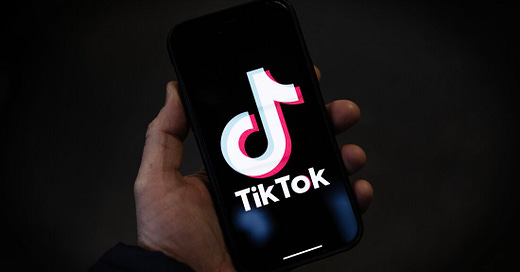A Bipartisan attempt to destroy the economy
The Economic Impact of the TikTok Ban in the United States
The announcement of a potential TikTok ban in the United States has sparked widespread debate, particularly around its economic implications. As one of the most popular social media platforms globally, TikTok serves as a critical tool for marketing, commerce, and employment. If a ban were implemented, it would have significant ramifications for jobs, small businesses, and broader economic trends.
TikTok's Role in the Economy
TikTok is more than a platform for sharing short-form videos; it is an economic engine. The app hosts over 150 million active users in the U.S., many of whom engage with branded content, advertisements, and e-commerce promotions. The platform’s unique algorithm helps small businesses reach niche audiences, making it a vital tool for entrepreneurs.
Key statistics include:
Over 5 million businesses actively use TikTok for marketing.
Approximately 80% of TikTok users have made a purchase based on platform recommendations.
Creators earned a collective $1 billion in 2022 through brand partnerships.
Impact on Jobs
A TikTok ban could directly affect millions of U.S. workers:
Content Creators: The creator economy relies heavily on TikTok. Many influencers generate full-time income by collaborating with brands. A ban would force these creators to pivot to other platforms, potentially losing their audience and revenue.
Marketing Professionals: Digital marketers specializing in TikTok-specific strategies could face job losses or require significant retraining.
Tech and Support Roles: TikTok employs thousands in the U.S. across engineering, moderation, and corporate roles. A ban would likely lead to layoffs.
Small Businesses at Risk
Small businesses often lack the marketing budgets of large corporations and rely on TikTok for affordable and effective outreach. Key sectors at risk include:
Retail and E-commerce: Small shops use TikTok to drive sales through viral campaigns and influencer partnerships.
Food and Beverage: Local restaurants often gain exposure through TikTok trends and challenges.
Services: From fitness trainers to craft artisans, TikTok enables service providers to connect with broader audiences.
Without access to TikTok, these businesses may struggle to maintain visibility, leading to reduced revenue and potential closures.
Broader Economic Effects
The ripple effects of a TikTok ban extend beyond immediate job losses:
Ad Spending: Brands allocated $10 billion to TikTok advertising in 2023. A ban would redirect this spending, likely benefiting competitors like Instagram and YouTube but disrupting marketing plans in the short term.
Consumer Behavior: TikTok has influenced purchasing trends, from beauty products to tech gadgets. Its absence could slow innovation and disrupt supply chains reliant on TikTok-driven demand.
Cultural Capital: The platform’s impact on entertainment and culture has bolstered industries like music and film. Without TikTok, artists and producers would lose a valuable promotional tool.
Visualizing the Impact
Below are charts illustrating the potential economic impact of a TikTok ban:
1. Job Loss Distribution
Sector Estimated Jobs Lost
Content Creators 500,000
Marketing Roles 200,000
Tech/Support Roles 10,000
Small Business Jobs 300,000
2. Small Business Revenue Decline
Business Type Estimated Revenue Loss (in billions)
Retail/E-commerce $5.0
Food/Beverage $2.5
Services $1.8
Conclusion
A TikTok ban in the U.S. would create widespread economic disruption, affecting millions of jobs and thousands of small businesses. While competitors may absorb some displaced activity, the unique role TikTok plays in fostering creativity, driving commerce, and shaping culture cannot be easily replaced. Policymakers should weigh these economic consequences carefully when considering such actions.




Hi or hard would it be to build Tok-Tik with all North American infrastructure?